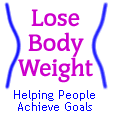
Click Your Topic
 |
 |
 |
 |
Beginning a New Excerise Program
If your starting to exercise for the first time or you starting a new exercise routine, you should start out slow and take precautions. You don't want to start out to fast, push your body and hurt yourself. The following are a few tips to follow and to make sure you can continue to exercise for years and year.
BE SMART.
Check with your health care provider before beginning an exercise program.
KEEP YOUR EXERCISE PROGRAM IN BALANCE.
Aerobic exercise should be combined with a sound strength-training program to work the heart and muscles. If you are just getting started, begin with small goals like walking before or after work for 20 - 30 minutes, or work up to that point. Ask your health care provider or fitness professional about what your heart rate should be during exercise. If it's too hot or cold outside, go to the mall and walk; be creative. Strength-training can be done at home, however, it's best to consult with a fitness professional before getting started. The American College of Sports Medicine recommends working opposing muscle groups for the lower, upper, and core body at least twice a week (for 20 - 25 minutes per workout).
TAKE CARE OF YOUR FEET.
Make sure your shoes provide good support and cushioning. Respond quickly to any foot problem (for example, blisters, bone bruises, etc.).
LISTEN TO YOUR BODY AND KNOW YOUR LIMITS.
Allow your body to adapt to relatively small increases in exercise intensity. The main cause of musculoskeletal injuries is overstress, especially from a sudden increase in how much exercise you do and how hard you train.
DRINK PLENTY OF FLUID BEFORE, DURING, AND AFTER EXERCISE.
Read the American College Of Sports Medicine Recommendations on adequate fluid replacement during exercise.
USE PROPER TECHNIQUES WHILE EXERCISING.
Appropriate body alignment can help reduce orthopedic trauma to your body and decrease the likelihood of being injured.
RESPECT SIGNALS FROM YOUR BODY THAT SOMETHING MAY BE WRONG.
Stop exercising if you experience any of the following signs , including abnormal heart beats, pain or pressure in your chest, dizziness, light-headedness, nausea during or after exercise, prolonged fatigue, or insomnia. Check with your health care provider if the symptoms persist.
GET ADEQUATE REST.
Lack of rest can lessen the benefits of your exercise regimen.
KEEP AN EXERCISE DIARY.
Record the type of exercise and amount of time you exercised every day.
MINIMIZE THE CONSTANT STRESS ON YOUR JOINTS.
If you prefer to engage in high impact exercise, try to also include low or non-impact forms of exercise in your program (preferably on an alternating basis).
REMEMBER, EXERCISE IS ONLY ONE FACTOR IN AN OVERALL HEALTHY LIFESTYLE.
As we age and our bodies change, so do our fitness and nutritional needs.
"3 Habits to Lose Weight: Nutrition, Exercise, Lifestyle"
Information presented on Lose Body Weight website is considered public information. This website is for informational and educational purposes only. The information provided is not intended as a substitute for the care of a doctor or medical professional. If you suspect that you have a health problem, we urge you to contact your physician or local hospital for care. Weight Loss ideas are not proven.